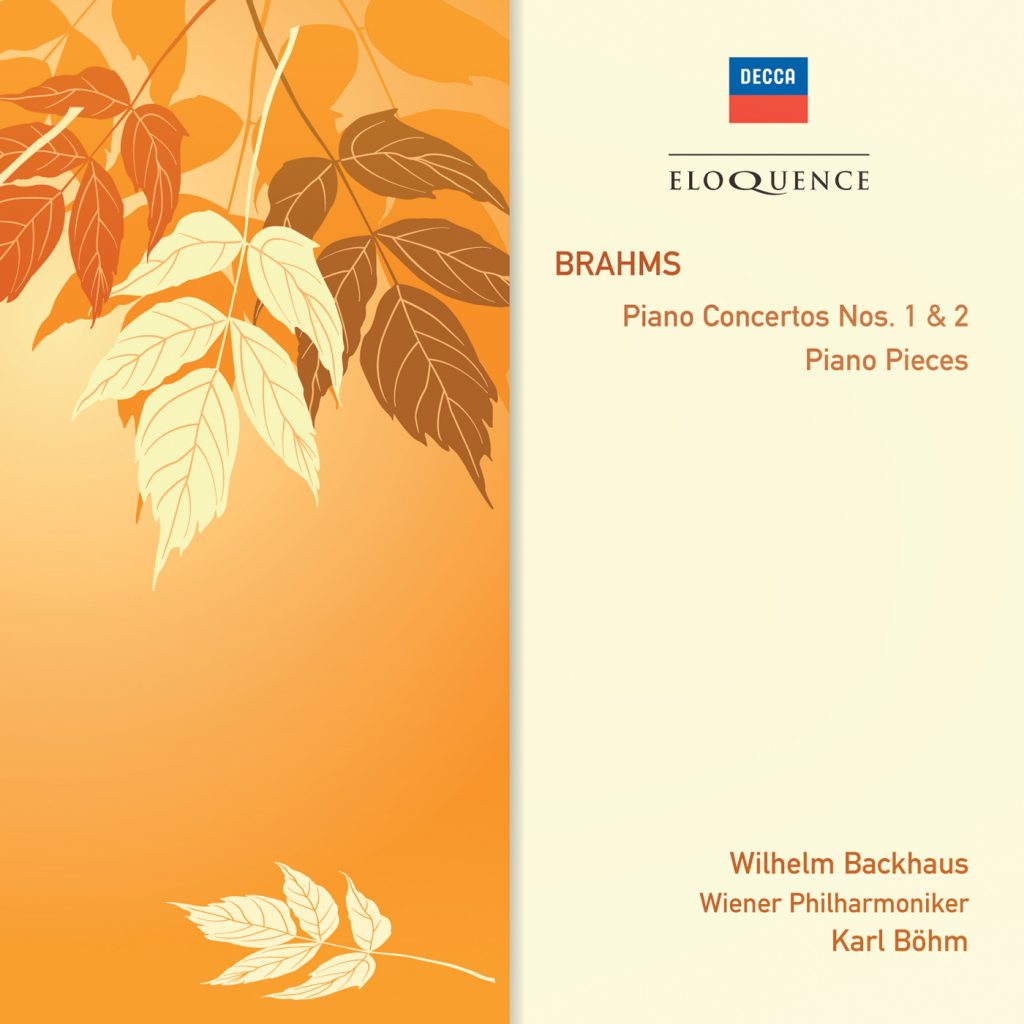
As an eleven-year-old in 1895, Wilhelm Backhaus met and performed for D’Albert, Grieg, Nikisch and Brahms, among others. Here was a pianist who shunned hectoring gestures of the late Romantic era for economy and purposefulness. ‘His facial expression always remained steady, showing an unceasing concentration on the sounds his hands were coaxing from the instrument with such concentrated energy. Everything lay in the act of playing, just as the preoccupation of a great painter or sculptor would be not with technique as such, but with craftsmanship – that is, skill not as an end in itself, but as a vehicle for the idea – giving pleasure to those who were able to watch and hear how a true master would execute even difficult passages effortlessly,’ writes Walter Frei. This 2CD set brings together Backhaus’ recordings with Karl Bohm and the Vienna Philharmonic of the two Brahms Piano Concertos – the first recorded in 1953, the second in 1967 shortly after the pianist’s 83rd birthday! They are coupled with a generous selection of the composer’s piano pieces, performed with the same nobility and breadth.
JOHANNES BRAHMS
CD 1
Piano Concerto No. 1 in D minor, Op. 15
Capriccio in B minor, Op. 76 No. 2
Intermezzo in E flat major, Op. 117 No. 1
Rhapsody No.1 in B minor, Op. 79 No. 1
Intermezzo in E major, Op. 116 No. 6
Intermezzo in E minor, Op. 119 No. 2
Intermezzo in C major, Op. 119 No. 3
CD 2
Piano Concerto No. 2 in B flat major, Op. 83
Six Piano Pieces, Op. 118
Wilhelm Backhaus, piano
Wiener Philharmoniker
Karl Böhm
Recording producers: Victor Olof (Piano Concerto No. 1); James Walker (Piano pieces); Ray Minshull (Piano Concerto No. 2)
Recording engineers: Cyril Windebank (Piano Concerto No. 1); Gil Went (Piano pieces); Michael Mailes (Piano Concerto No. 2)
Recording locations: Grosser Saal, Musikverein, Vienna, Austria, June 1953 (Piano Concerto No. 1), Victoria Hall, Geneva, Switzerland, November 1956 (Piano pieces); Sofiensaal, Vienna, Austria, April 1967 (Piano Concerto No. 2)
what a delectable issue … Backhaus’ style while not flamboyant, strikes to the very pith of the music, drawing out all its drama’ Limelight
